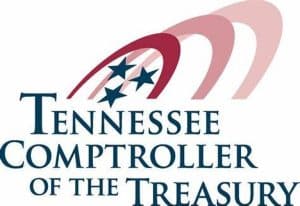News
Election to be held for Vacant 6th District County Commission Position
January 24, 2024
By: Dwayne Page
An election will be held to fill the unexpired term of the vacant 6th district county commission position.
Justin Adcock, who was elected in August 2022, announced his resignation Monday night at the end of the monthly county commission meeting effective immediately. The commission accepted the resignation. Adcock’s term expires August 31, 2026.
Administrator of Elections Dustin Estes has announced that the office of County Commission District 6 will be on the August 1, 2024 ballot to fill the unexpired term. This election will be held in conjunction with the 2024 DeKalb County General Election.
County parties may certify a candidate by caucus by the qualifying deadline 12 NOON April 4, 2024.
Independents may pick up petitions beginning February 5, 2024.
The county commission is expected to appoint someone temporarily to fill the position until the August Election during its next monthly meeting on February 26 at the Mike Foster Multipurpose Center Auditorium at 6:30pm”.
County Mayor Matt Adcock announced Tuesday that those that wish to fill the vacancy must be nominated by another commissioner, meeting all the qualifications of a County Commissioner, and their primary residence must be in the sixth district of DeKalb County. Reach out to your County Commission or County Mayor for a request of nomination. For questions, feel free to contact the County Mayor’s Office at 615-597-5175″.
State Comptroller cites findings in DeKalb Road Supervisor and Director of Schools Offices In Latest Audit Report
January 23, 2024
By: Dwayne Page
The state has released its audit report on the basic financial statements of DeKalb County as of and for the year ended June 30, 2023.
According to the state comptroller’s office, “our audit resulted in five findings (3 in the Office of Road Supervisor and 2 in the Office of Director of Schools) and recommendations, which we have reviewed with DeKalb County Management. Each department has responded and cited planned corrective actions”.
To see the full annual financial report visit:
https://comptroller.tn.gov/content/dam/cot/la/documents/county/2023/FY23DekalbAFR.pdf
The detailed findings, recommendations, and management’s responses are included in the Single Audit section of this report below:
FINDINGS BY OFFICE
The following are summaries of the audit findings:
Office of Road Supervisor
FINDING: The Highway/Public Works Fund required material audit adjustments for proper financial statement presentation.
“At June 30, 2023, certain revenue and expenditure account balances reflected in the accounting records of the Highway/Public Works Fund were not materially correct, and audit adjustments totaling $1,112,428 were required for the financial statements to be materially correct at year-end. During the year examined, highway department personnel posted five separate journal entries that erroneously reduced revenue and expenditures that had been posted to record the transactions of a state-aid bridge project. The effect of these entries was to eliminate all transactions of the bridge project and understate both revenues and expenditures in the fund financial statements by $1,112,428. Generally accepted accounting principles require the highway department to have adequate internal controls over the maintenance of its accounting records. Material audit adjustments were required because the department’s financial reporting system did not prevent, detect, or correct potential misstatements in the accounting records. It is a strong indicator of a material weakness in internal controls if the county has ineffective controls over the maintenance of its accounting records, which are used to prepare the financial statements, including the related notes to the financial statements. This deficiency is the result of a lack of management oversight. We presented audit adjustments to management that they approved and posted to properly present the financial statements in this report”.
RECOMMENDATION:
“The highway department should have appropriate processes in place to ensure its accounting records and subsequent financial statements are materially correct.
MANAGEMENT’S RESPONSE – ROAD SUPERVISOR: “ I concur with this finding.”
PLANNED CORRECTIVE ACTION: “We will properly post revenue and expenditures from this point forward”
FINDING: Expenditures exceeded appropriations.
“Expenditures exceeded appropriations in the Capital Outlay major appropriation category (the legal level of control) of the Highway/Public Works Fund by $273,970. Section 5-9-401, Tennessee Code Annotated, states that “All funds from whatever source derived, including, but not limited to, taxes, county aid funds, federal funds, and fines, that are to be used in the operation and respective programs for the various departments, commissions, institutions, boards, offices, and agencies of county governments shall be appropriated to such use by the county legislative bodies.”
RECOMMENDATION: “ Expenditures should be held within appropriations approved by the county commission.
MANAGEMENT’S RESPONSE – ROAD SUPERVISOR: “I concur with this finding”.
PLANNED CORRECTIVE ACTION: “We will do budget amendment from now on”
FINDING: The office had deficiencies in the administration of accrued leave records.
“Our examination revealed the following deficiencies related to the administration of accrued leave records. These deficiencies exist due to a lack of management oversight and the failure to comply with state statute”.
“A. Accrued leave records for the highway department contained numerous errors. Beginning balances did not always agree with the prior period ending balances. In some instances, records indicated that employees used leave amounts that were in excess of what was accrued, and in other instances, employees had no earned time recorded when it appeared that they likely should have. The failure to make accurate calculations and maintain accurate balances weakens internal control over the payroll process and increases the risks of improper payments”.
“B. Subsidiary accrued leave accounting records were not closed and available for audit by August 31, 2022, as required by Section 9-2-102, Tennessee Code Annotated. This statute provides that records should be available for audit no later than two months after the close of the June 30 fiscal year-end. The accounting records for the department’s accrued leave were made available to auditors on September 8, 2023. The failure to maintain accounting records on a current basis diminishes the usefulness of the financial records as a management tool, results in the loss of accounting controls, and increases the risk that errors will not be discovered and corrected in a timely manner.
RECOMMENDATION: Balances of accrued leave should be properly recorded in compliance with local policy and regularly reviewed for accuracy, and any noted errors should be corrected promptly. Management should close its subsidiary accrued leave accounting records and have those records available for audit by the following August 31”.
MANAGEMENT’S RESPONSE – ROAD SUPERVISOR: “ I concur with this finding”
PLANNED CORRECTIVE ACTION: “We will get help from CTAS cleaning this up”
Office of Director of Schools
FINDING: The school department violated state statues in the administration of a stadium bleachers construction project.
During the year, the school department completed a stadium bleachers construction project totaling $585,410. Our examination revealed violations of state statutes in the administration of this project”.
“A. The department did not employ a registered architect or engineer to design plans, specifications, or estimates for the project. Section 62-2-107, Tennessee Code Annotated (TCA), requires a registered architect or engineer to be employed whenever construction projects are estimated to exceed $50,000”.
“B. Competitive bids were not solicited for some of the construction materials used for the project. Purchasing procedures for the county are governed by a private act which requires competitive bids to be solicited through newspaper advertisement on all purchases exceeding $10,000. The school department purchased the materials for the bleachers through Sourcewell, a national purchasing cooperative. Section 12-3-1205, TCA, allows governments to make purchases through cooperatives; however, Section 12-3-1205(b)(4)(B), TCA, specifically prohibits the purchase of certain items, including construction materials, through cooperative agreements”.
RECOMMENDATION: “The school department should follow state statutes governing all construction projects and the purchases of construction materials”.
MANAGEMENT’S RESPONSE – DIRECTOR OF SCHOOLS: “I disagree with this finding.
AUDITOR’S COMMENT: “ The Director of Schools states above that he disagrees with the finding and includes a comment in the corrective action plan that he thought they could use purchasing cooperatives. As pointed out in the finding, Section 12-3-1205, TCA, allows governments to make purchases through cooperatives; however, Section 12-3-1205(b)(4)(B), TCA, specifically prohibits the purchase of certain items, including construction materials, through cooperative agreements.
PLANNED CORRECTIVE ACTION: “We will bid future construction projects”
FINDING: Amounts withheld from contractor payments were not deposited into an escrow account
“The school department did not deposit amounts withheld from contractor payments into an escrow account related to a construction contract for the installation of HVAC systems at various school gyms totaling $1,193,733. Section 66-34-104, Tennessee Code Annotated, requires that funds withheld from contractor payments be deposited into an escrow account with a third-party for contracts of $500,000 or more. This deficiency is the result of a lack of management oversight and could result in the loss of interest earnings for the contractor”.
RECOMMENDATION: “Amounts withheld from contractor payments on contracts of $500,000 or more should be deposited into an escrow account in compliance with state statute”.
MANAGEMENT’S RESPONSE – DIRECTOR OF SCHOOLS: “I concur with this finding”
PLANNED CORRECTIVE ACTION: “When we have big projects, money will be placed in the proper ESCROW account”
County to Partner with 911 on more affordable Emergency Radio Communications Package (View Video Here)
January 23, 2024
By: Dwayne Page
It’s not a $2.3 million solution to the overall problem, but the county and 911 Director have found common ground on a way to fund a portion of the county’s emergency radio communication system needs.
During Monday night’s monthly meeting, the County Commission voted unanimously (among the 12 commissioners in attendance) to adopt a proposal offered by 911 Director Brad Mullinax and County Mayor Matt Adcock to make a one- time expenditure of $1.2 million in a joint venture with the 911 board to replace all radios for the sheriff’s department and ambulance service through Motorola Solutions, except for the EMS mobile radios the state is going to fund. The Motorola radios would be under warranty for seven years. To keep the costs down, new radios for the county fire department and rescue squad would not be included in this plan. Efforts would be made to apply for federal funding through FEMA’s Assistance to Fighters Grant for new fire department radios only. However, there is no guarantee the county’s AFG grant application would be funded. If not, the county would have to come up with a plan to incrementally fund the purchase of new fire department and rescue squad radios. In the meantime, both the fire department and rescue squad could continue to use the radios they have.
Although the 911 Board has not yet met to sign on to this latest proposal, Director Mullinax said he will ask the board to authorize funding for half the project, $600,000 if the county will agree to fund the other half, $600,000. According to County Mayor Adcock, the county’s portion would come from a combined total of $297,581 in federal American Rescue Plan Tribal funds and unrestricted opioid settlement money along with an appropriation from the county general budget’s unassigned fund balance (reserves or local tax dollars) of $302,418 through a budget amendment to be considered at the February commission meeting . Under this plan, the county would enter into a $1.2 million contract with Motorola to purchase the radios and the 911 board would pay their part ($600,000) directly to the county as a contribution.
Unlike the previous proposals offered over the last month including the latest by 911 on Friday, this plan requires no lease or financing. It’s a one-time expenditure. But while this proposal is cheaper than the others previously offered, Director Mullinax said it does not address all the county’s communication issues.
“The 911 board voted unanimously on Friday during an emergency session to make a $900,000 contribution to the county to replace the entire radio system. This was a $2.3 million project. But after a discussion with County Mayor Matt Adcock, I don’t think that plan would be financially feasible for the county. While that is the ideal solution to replace all the public safety radios, the county is probably not in a financial position to do that right now based on some of the concerns Mayor Adcock expressed to me,” said Mullinax.
“This new deal is for $1.2 million. I have not yet talked to all of my 911 board members. As part of this deal we (911) don’t get the free consoles from Motorola so we (911) will have to buy our consoles at $300,000. So instead of offering the county $900,000 I am still willing to put in the $600,000 to the county which would make the county’s portion a $600,000 investment with no lease agreement or financing to burden the taxpayer. Although it is not the best solution, I think this is a very good option,” said Mullinax.
“What this current $1.2 million proposal would do is replace all the radios for law enforcement and EMS”, Mullinax explained. “ As you know the state of Tennessee is putting mobile radios in ambulances at no charge. That is part of the Tennessee Department of Health Initiative so all we need to do for the EMS is put portable radios and vehicle repeaters in the ambulances so they can use those portable radios. That would complete that piece of it. For law enforcement we would be putting in mobile radios, vehicle repeaters, and portables. Our law enforcement and EMS personnel are the ones that use the system the most so I think it’s a priority to get those replaced first but we don’t want to leave out our rescue squad and fire department. Their radios will need to be replaced eventually. Another benefit of this deal is that I can take the two repeaters on Short Mountain that are still functioning for EMS and law enforcement and disconnect them and put them in my office and if we have an outage on the fire channel (frequency), I have some backup parts I can use to replace that until the portable and mobile radios can be replaced for the fire department,” added Mullinax.
“As I have told you in the past, the main problem with the radio system is not necessarily the radios in the cars, but it’s the repeater equipment, the microwave equipment on Short Mountain, Snow Hill, and Jefferson that connect all that together and make it work. That is the problem,” explained Mullinax. “ As we speak and ever since the ice storm and snow of last week, the Snow Hill and Jefferson sites have been off line. They are still not working at all. We are working off the Short Mountain site alone. We have had lots of discussions about going to the Tennessee Advanced Communications Network (TACN) network. A system maintained by the State of Tennessee which is responsible for all repairs, maintenance, and upgrades. But in order to join TACN, responder radio replacements here are required. Over the long haul, there is no doubt in my mind that by joining TACN we would save us a lot of money for maintenance and upkeep of those radios,” said 911 Director Mullinax.
Where does that leave the county fire department?
“It is AFG enrollment time,” said Mullinax. “I have talked to Fire Chief Donny Green and there is a very good chance that the county fire department could get a grant to replace their radios. It might be strengthened a little bit by this deal we are offering you because the fire department will have a problem with interoperability inside this county. If we switch the TACN system over to digital for law enforcement and EMS, (the county fire department) is going to have to be patched through dispatch in order for it to work but it will work just fine. If they (firefighters) are on a scene working, we can do a radio patch and they will never know the difference,” said Mullinax.
Fire Chief Green said he supports the plan to incrementally integrate new radios into all the county emergency service agencies, but he doesn’t want the fire department to be left out long term if an AFG grant application is not funded for this purpose.
“The Assistance to Firefighters Grant is a federal program administered by FEMA and there are three categories and one is to apply as a single fire department, which is what we have done in the past,” said Chief Green. “The other is for health and safety type things, and the last is a regional grant option and with that you partner with other agencies and departments. The only agencies that are eligible to receive benefits under the Assistance to Firefighter Grant program are fire and EMS. Rescue squads are not eligible. If you enter into an agreement with more than one fire department or if you do one fire department and an EMS agency, that is considered a regional grant project. The radios we are talking about are eligible and are high priority in the decision matrix for FEMA in the way they score those applications but I have no clue as to what the odds are for us getting a grant. You are talking about fire departments all across the nation applying for this so its very competitive. We have been very successful on our grants here but I can’t tell you how we would fare on this one. I certainly believe it would be foolish not to try to take advantage of it when we can get 95% of the project paid with a 5% local match. I am supportive of us doing this incrementally but if for some reason we don’t get the AFG funding I don’t want us to be left out and always be stuck with an antiquated system. I would want the county commission to consider committing long term to building everybody into this model. My concern is that we be able to pay for it and sustain it into the future and that it not impact my fire department budget by taking away from the other important parts we have to deliver such as equipment and everything in our budget,” said Chief Green.
Mullinax suggested that if the county were to be approved for an AFG grant for fire department radios, 911 might be capable of funding the 5% local match.
On January 12th, the county commission considered adopting a $1.2 million proposal which was different from the $1.2 million plan approved Monday night.
911 Director Mullinax said the January 12 plan was really not the best option.
“When we actually looked at that, it was going to require us to still maintain the EMS frequency, still maintain the Sheriff’s department frequency, and still maintain the paging base station. It didn’t make any sense for us to spend $1.2 million when we would still have to maintain something we really can’t maintain any longer,” said Mullinax.
“This latest proposal allows us to move EMS and law enforcement over and only maintain the fire and paging channel and we can use the parts from those other two frequencies to backfill and repair the fire channel if it goes down. The ones (radios) they (rescue squad) have are still running,” said Mullinax.
“People want to know why we are not using tax dollars wisely,” said Commissioner Myron Rhody. “I think this shows we are trying to use tax dollars wisely. We didn’t just approve the (original $2.3 million deal). We are now down to getting the system upgraded and not all at one time. I like this plan better than anything I have heard so far,” said Rhody.
“I do want to stress what Myron said about us trying to be fiscally responsible with money,” added Commissioner Greg Matthews. “It was brought up (in public comments) that we don’t need all these new things but you don’t need a good new fire engine until your house is the one on fire and you don’t need a new ambulance that works until your loved ones are laying there dying. We can’t get behind again. We are in the trouble we are in because of that same mentality for 30-40 years around here. We are trying to be very financially responsible, and we appreciate everybody out there that understands that,” said Matthews.
While Commissioner Larry Green made a motion to adopt the plan which was approved Monday night, he really preferred a better option. “I don’t like this plan because I think we are throwing $300,000 away we could have gotten. I think there is money we could have used but I will support it and make a motion that we approve this plan based upon the 911 board approving it,” said Commissioner Green. Again, Green’s motion was adopted unanimously (12-0)
Commissioner Rhody suggested that the county begin making plans for long term and on-going budgeting yearly to keep the radio system updated.
During the public comments at the beginning of the meeting, Janice Clayborn of the 7th district urged the commissioners to think twice before committing to so much spending and keep in mind the poor taxpayers of the county.
“I would just like for all of you to think about the people in DeKalb County that are very low income. I speak for them because there are a lot of people that’s barely getting by, older people and some younger people. I just feel like you are not thinking of them. I think its time to stop spending all this money on all these wants and think about the poor people in this town. I think we have gotten by for a lot of years without all this fancy stuff. I think we have enough fire engines and patrol cars. We have to think about the people and we have to think about the highway department. I have brothers who work there and risk their lives every day on the roads with these old tractors with no protection of being hit. I grew up poor and I know there are people out here struggling and I wish you would think of them,” said Clayborn.
Pam Charles of the 2nd district said unlike the last meeting on January 12 when the public comment period was held at the end of the meeting, tonight (Monday) it is being held at the beginning of the meeting before she even hears any discussion on the issue in which she wants to make a comment.
Still Charles urged the commissioners to seriously consider the issue being presented.
“ I would very much urge you to support this (proposal) because it’s necessary for the county to provide those seamless services to residents of the community in terms of public safety. I urge you to give that (proposal) the weight it deserves. It bothered me from the last meeting (January 12) but I completely understood the commissioners who voted against the proposal because they wanted to see where the money was coming from. I don’t like to commit myself to money if I don’t know If I am going to have it in the checking account at the end of the month. I talked to one of my representatives and I know she had wanted a budget meeting. I talked to the county mayor today and he said he had no intention of calling a budget meeting. I don’t understand why a commissioner can’t request a meeting. I don’t understand the process. I feel that is something that is ineffective in the way we as a county are doing business. If we are discussing budget items the commissioners should be working with the county mayor to facilitate those budget discussions and be able to have a budget meeting if they want,” said Charles.
« First ‹ Previous 1 175 265 273 274 275276 277 285 375 2492 Next › Last »










